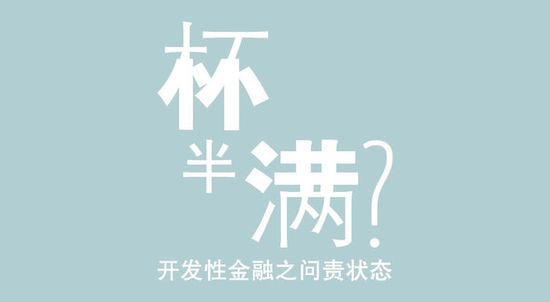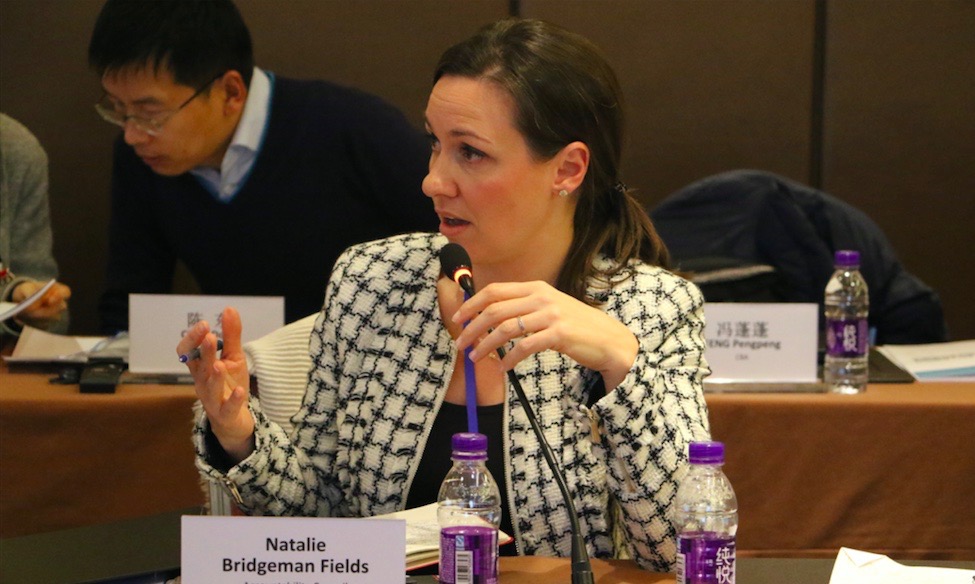New Mandarin Chinese Translation of Glass Half Full, The Seminal Report on Accountability in Development Finance

In 2016, Accountability Counsel worked collaboratively with 10 other civil society organizations to evaluate how the accountability system for development finance is – and is not – working. The result of this major research project was Glass Half Full? The State of Accountability in Development Finance. We are pleased to share the Mandarin Chinese version for the first time today.
Glass Half Full explores the process by which people seek accountability when development projects cause harm to local communities and degrade the environment. The institutions that finance these projects have designed independent accountability mechanisms (IAMs) to respond to grievances, which provide a critical forum for communities and serve as a tool for institutional learning and improvement.
Since the report’s release in 2016, Accountability Counsel and our Glass Half Full partners have used the research findings as a platform to recommend policy change and ensure that the accountability system is better able to deliver accountability, remedy, and learning. The IAMs themselves, and the policymakers overseeing them, report to us that they too look to Glass Half Full as a seminal overview of the functioning and gaps of the development finance accountability ecosystem.
Now, in 2019, we are pleased to release a Mandarin Chinese version of Glass Half Full (半杯滿?), which is the result of a coordinated effort between co-authors Accountability Counsel and Centre for Research on Multinational Corporations (SOMO), and Oxfam Hong Kong. This translation is important, and particularly now, for the following reasons.
 First, Chinese policy and commercial banks are increasingly adopting social and environmental standards for their overseas lending – standards that are all the more essential with China’s increasing investment through the Belt and Road Initiative. However, in order for those standards to have meaning, effective implementation requires accountability. IAMs can be an effective investor tool for sustainability of projects, as well as a way to facilitate community consultation and local buy-in. Further, IAMs are often one of the only ways for communities to engage with Chinese institutions to communicate grievances. Providing information from Glass Half Full in Mandarin can facilitate the Chinese Government’s role in ensuring best practice in accountability and access to redress within their institutions.
First, Chinese policy and commercial banks are increasingly adopting social and environmental standards for their overseas lending – standards that are all the more essential with China’s increasing investment through the Belt and Road Initiative. However, in order for those standards to have meaning, effective implementation requires accountability. IAMs can be an effective investor tool for sustainability of projects, as well as a way to facilitate community consultation and local buy-in. Further, IAMs are often one of the only ways for communities to engage with Chinese institutions to communicate grievances. Providing information from Glass Half Full in Mandarin can facilitate the Chinese Government’s role in ensuring best practice in accountability and access to redress within their institutions.
Second, as the largest shareholder of the Asian Infrastructure Investment Bank (AIIB), with its newly created Project-affected People’s Mechanism (PPM), the Chinese Government and other stakeholders can use Glass Half Full as a resource to improve the policy and practice of the PPM and the institution as a whole.
Finally, the timing coincides well with Accountability Counsel’s continuing participation in conversations about creating new IAMs within China at policy and commercial banks lending abroad. As we launch Glass Half Full in Mandarin, our Executive Director is participating in a workshop in Shanghai to advance the discussion of accountability at Chinese institutions. Now is an important time for Chinese leaders to have access to the learning from Glass Half Full and ensure that new IAMs reflect best practice and avoid the pitfalls that have hampered the effectiveness of the existing accountability ecosystem to date.
As Accountability Counsel prepares to launch a database, the Accountability Console, this September that provides live data and analysis from every complaint ever filed to every IAM, Glass Half Full findings and recommendations will continue to shape how we support communities in their IAM complaints. Users of Glass Half Full will be able to evaluate how the policy recommendations that are adopted from the report translate into improved IAM outcomes over time, as the Console reports out live development of our field.
Please join us in sharing this new edition of Glass Half Full in Mandarin, and we invite you to review the English version.
The Glass Half Full contributing organizations are:
- Accountability Counsel
- American University Washington College of Law
- Both ENDS
- CEE Bankwatch Network
- Center for Human Rights and Global Justice (CHR&GJ)
- Center for International Environmental Law (CIEL)
- Centre for Research on Multinational Corporations (SOMO)
- Counter Balance
- Foundation for the Development of Sustainable Policies (FUNDEPS)
- Inclusive Development International (IDI)
- Natural Justice
《半杯满?》,开发性金融问责制研讨会报告的中文版
问责顾问在2016年与其他10个民间社会组织合作,颁布了开发性金融的问责机制有效性的评估报告:《半杯满:开发性金融之问责状态》。 其报告审查评估开发性金融系统的优缺要点,而今天我们很高兴今天第一次分享普通话版本。
《半杯满》探讨了当发展项目对当地社区造成伤害并使环境恶化时人们追究责任的过程。 为这些项目提供资金的机构设计了独立的问责机制(IAM)来应对不满,这为社区提供了一个重要的论坛,并成为机构学习和改进的工具。
自2016年报告发布以来,问责顾问和我们的《半杯满》合作伙伴将研究结果用作推荐政策变更的平台,并确保问责系统更好地提供问责制、补救措施和学习。 IAM本身以及监督它们的政策制定者向我们报告说,他们也将《半杯满》视为重要参考,以了解发展性金融问责生态系统的功效与不足。
现在,在2019年,我们很高兴发布中文版的《半杯满》,这是共同作者问责顾问和跨国公司研究中心(SOMO)共同努力的结果, 和乐施会香港。 由于以下原因,这种翻译很重要,特别是现在。
首先,中国的相关部门和商业银行在进行海外贷款时,越来越多地考虑到社会和环境标准。这些标准对于中国通过“一带一路”倡议增加投资而言更为重要。 但是,为了使这些标准具有意义,有效的实施需要问责制。 IAM不仅是促进社区咨询和获得本地支持的一种方式,对项目的可性持性来说,也是一种有效的投资者工具。 此外,IAM通常是社区向中国机构表达不满的少数途径之一。 提供《半杯满》的中文信息可以促进中国政府在确保其机构内问责制和获得补救的最佳实践方面的作用。
其次,中国政府作为亚洲基础设施投资银行(AIIB)的最大股东,可以和其他利益相关者使用《半杯满》作为资源来改善PPM和整个机构的程序和实践。
最后,时机恰逢问责顾问继续参与有关在国外政策和商业银行贷款中创建新IAM的对话。 当我们推出《半杯满》普通话版时,我们的执行董事将参加在上海举办的研讨会,推进中国机构问责机制的研讨会。 现在中国的相关领导获取《半杯满》信息的重要时机,并确保新的IAM反映最佳实践,避免妨碍迄今为止现有问责制生态系统有效性的陷阱。
问责顾问将在今年9月启动一个数据库,即“问责控制台”,该数据库以IAM备案的每起投诉为蓝本,能提供实时的数据和分析。《半杯满》的成果和建议将继续影响我们支持社区IAM投诉的方式。因为控制台数据库将实时报告我们的实地进展,《半杯满》的用户将看到报告所采纳的政策建议如何逐渐转化为IAM的结果。
欢迎你们分享《半杯满》的中文版本。

